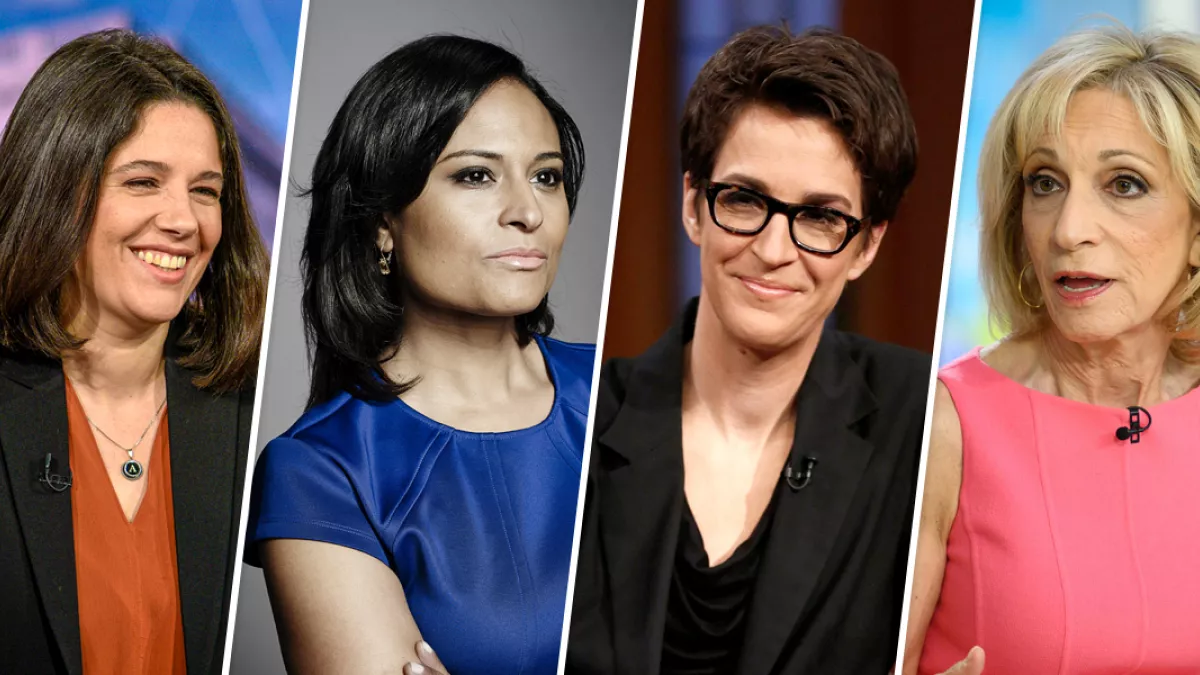When Rachel Maddow opened her Tuesday night broadcast with a quiet, somber tone, longtime viewers knew something was different. What followed wasn’t a breaking news alert or a bombshell investigation. It was a farewell—one that felt both sudden and long overdue.
After nearly two decades as MSNBC’s leading voice, Maddow announced that she would be stepping away from her nightly program “indefinitely.” Not because of scandal. Not because of ratings. But because of burnout—and a growing sense that she and the network she helped build were no longer aligned
“I’ve given everything I have to this job,” she told viewers, her voice trembling slightly. “And at some point, you realize you’ve been running on fumes.”
What followed was a moment of quiet reckoning not just for Maddow, but for MSNBC—and perhaps for the entire cable news industry.
The Rise of a Reluctant Star
Rachel Maddow’s career has always defied convention.
When she joined MSNBC in 2008, cable news was dominated by louder, more confrontational personalities. Maddow brought something different—an analytical depth, a commitment to longform journalism, and a calm, professorial tone that stood out in a world of rapid-fire soundbites.
It didn’t take long for her show to become a flagship for MSNBC, especially during the Obama years and the turbulent Trump presidency. With whiteboards, timelines, and footnotes, she transformed dense policy into digestible narratives—always backed by exhaustive research.
But behind the intellectual discipline was a personal cost that few outside her inner circle understood.
Signs of Strain

Over the past several years, Maddow began taking more frequent breaks. At first, they were described as “sabbaticals” or “creative retreats.” But insiders now confirm that these absences were about something deeper: exhaustion.
“She’s meticulous,” said one senior MSNBC producer. “She writes most of her own scripts, vets every source, and rehearses endlessly. It’s not a team churning out segments—it’s Rachel, doing the work. And that kind of intensity wears on you.”
One turning point came during the COVID-19 pandemic, when Maddow began broadcasting from home while caring for her partner, Susan Mikula, who had contracted the virus. In one particularly emotional episode, she confessed the fear of potentially losing Mikula—a moment that resonated far beyond political circles.
That vulnerability, rare in cable news, signaled something had shifted.
Tension Inside the Network

While burnout was a major factor in Maddow’s departure, it wasn’t the only one.
Over the past 18 months, MSNBC has been undergoing a quiet but profound transformation. With new leadership and a renewed focus on younger, more diverse talent, the network has shifted away from the longform analysis that defined Maddow’s brand.
Instead, there’s been a push for faster content, panel discussions, and viral moments—driven, insiders say, by pressure from Comcast executives to compete more directly with streaming platforms and digital-first media.
“There’s a growing divide between what Rachel believes journalism should be and where the network is going,” said a former executive producer. “She wants storytelling, depth, time to investigate. The network wants clicks, speed, and ratings.”
According to sources, Maddow had expressed concerns privately—and, at times, directly—to senior leadership. But the gap kept widening.
A Difficult Decision, Made on Her Terms
The final decision to step away came after months of internal discussion. Though Maddow is still under contract, sources say she negotiated the ability to scale back from her nightly commitments and pursue other projects—including possible documentary series, books, and longform podcasting.
“She didn’t want to walk away entirely,” said a colleague. “But she needed to find a way to protect her health and her craft. And in the current format, that wasn’t possible.”
Her announcement was characteristically honest and self-aware. She didn’t dramatize it. She didn’t make herself the story. She simply explained that it was time to step back—because the work deserved her full presence, and she couldn’t give it anymore.
That humility, ironically, was what made the moment so powerful.
The Fallout at MSNBC
The network’s response has been cautious and strategic.
MSNBC has yet to name a permanent replacement for Maddow’s 9 p.m. time slot. In the interim, a rotation of guest hosts will fill the hour, each tasked with retaining a fragile audience base accustomed to Maddow’s singular voice.
But the ratings question is unavoidable.
For years, Maddow’s program was among the highest-rated on cable, especially in the critical 25–54 demographic. Her absence is expected to cause a significant dip—one that rivals like CNN and Fox News will likely exploit.
More importantly, there’s a question of identity. Without Maddow anchoring the night, what is MSNBC? And can it maintain the credibility she spent nearly two decades building?
“She’s not just a host,” said media analyst David Folkenflik. “She’s the editorial conscience of the network. Losing that—whether temporarily or not—changes everything.”
